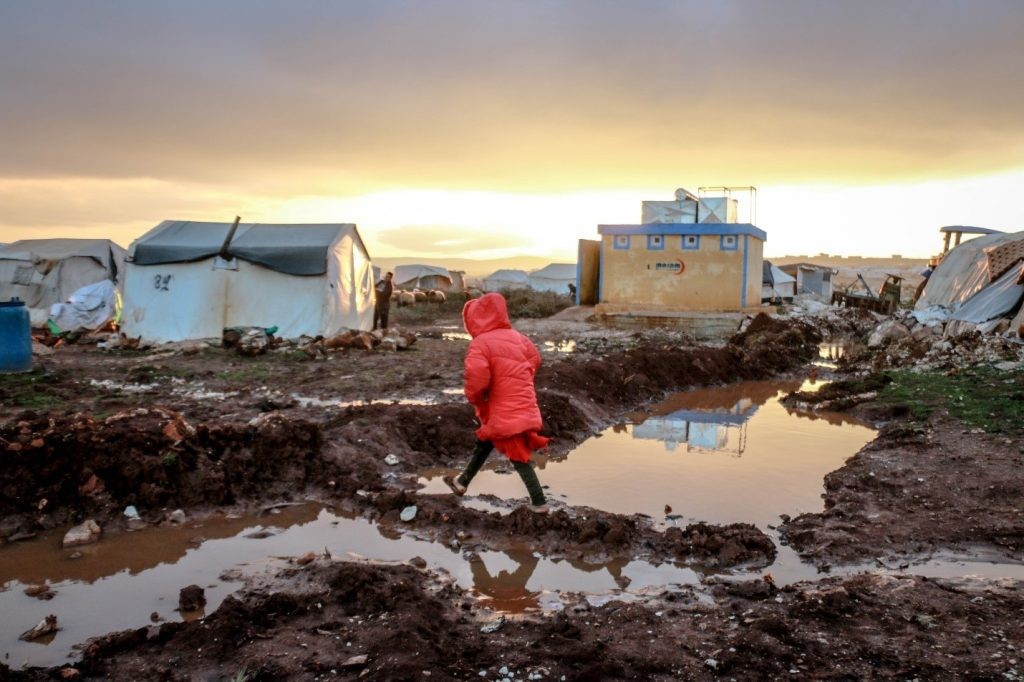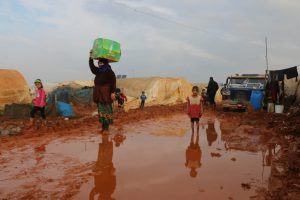At the press briefing that was held at the Palais des Nations in Geneva, Andrew Harper, Special Advisor on Climate Action to the United Nations High Commissioner for Refugees warned that when the wet season begins in May, persistent floods and displacement in South Sudan will escalate. To protect already vulnerable populations from the harshest effects, immediate action is required.
In 2021, South Sudan, a vulnerable country grappling with political and economic issues since its independence in 2011, experienced its worst flooding on record. According to the UN Office for Humanitarian Affairs, more than 835,000 people were affected. Overflowing rivers and record rains in the last three years have inundated thousands of hectares of farmland in eight states, preventing people from cultivating. It’s estimated that about 800,000 animals died. This has decimated subsistence farming, which is the lifeblood of most communities and has exacerbated food insecurity.
Thirty-three counties out of 79 have been severely impacted by floodwaters, which have not appreciably decreased since the previous wet season. Thousands of people have been displaced in Jonglei, Unity, and Upper Nile states, while others have been trapped in dike-ringed compounds, keeping back floodwaters with mud, twigs, and plastic sheeting. The upcoming rainy season has the potential to suffocate extremely distant settlements that are already surrounded by floodwater. Extreme climate occurrences will become the norm, not the exception, in the future. Floods and droughts are growing more often and more severe around the world. South Sudan, for example, contributes the least to carbon emissions yet is disproportionately affected.
Andrew Harper visited Old Fangak, Malakal, Jamjang, and Bentiu earlier this month on a five-day stay and witnessed the human impact of the water. He also visited Yida refugee camp, which is in the midst of a drought on the polar end of the spectrum. Humanitarian help is hampered by a lack of access to the world’s most vulnerable people. External support is difficult to access in isolated regions, such as Old Fangak, where the previous airport is fully underwater and currently unusable for landing, due to poor or non-existent road infrastructure. Despite several obstacles, inhabitants have been exceedingly generous to those who have been displaced by conflict or severe weather, often giving their meager resources. They do, however, require ongoing assistance in order to avoid catastrophic results.
In Old Fangak, Andrew met a 70-year-old woman who spent her days wading through murky floodwaters, urgently filling a porous earthen levee with twigs and mud to keep water from flooding her family’s modest compound. It’s horrible to witness. Marooned residents of Old Fangkak stated they need water pumps to bail out their premises ahead of the storms. Heavy machinery is also required to construct flood barriers and mounds that will keep their cattle above water.
UNHCR has donated plastic sheets, hoes, spades, and sandbags to help with flood defenses, and is assisting families who have been displaced to Malakal and other places. If help is not increased for the people of South Sudan, the climate disaster, along with continuous insecurity, will severely deplete resources, leaving people without a means of survival. If immediate action is not taken, the price will be tremendous, with grave human repercussions. To avert further losses, improve preparedness, and assure a livable and sustainable future for all, urgent action is needed.







